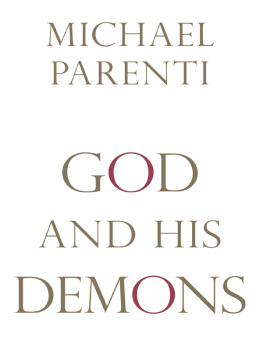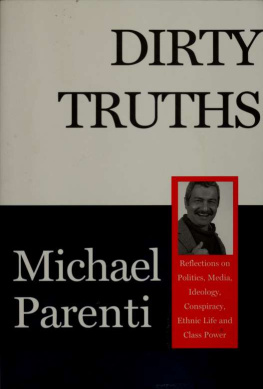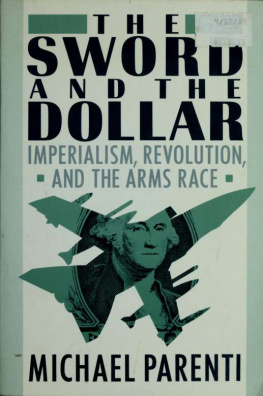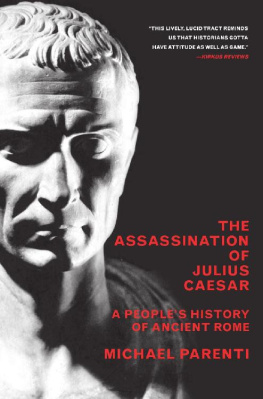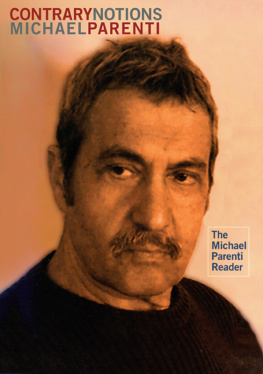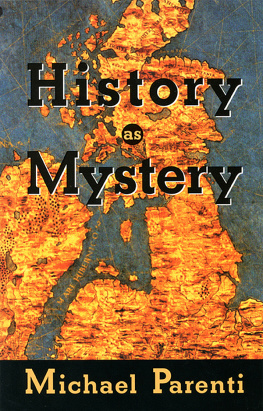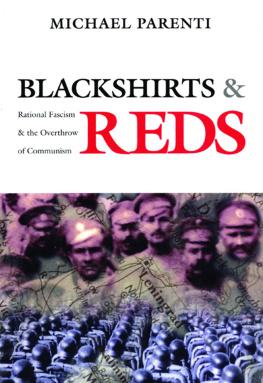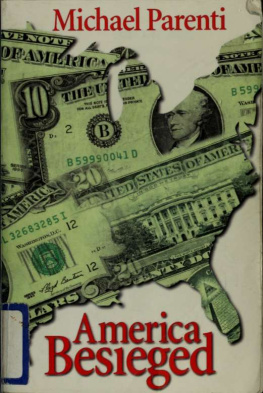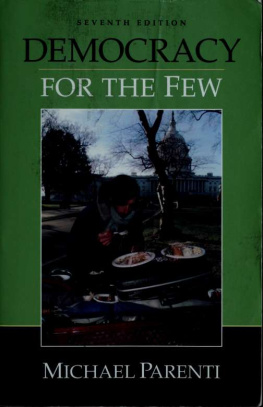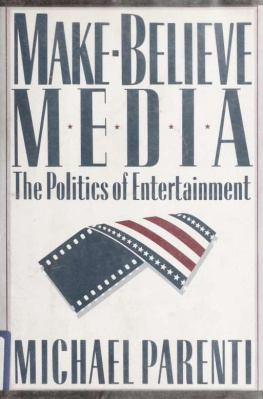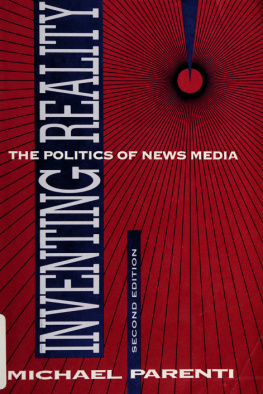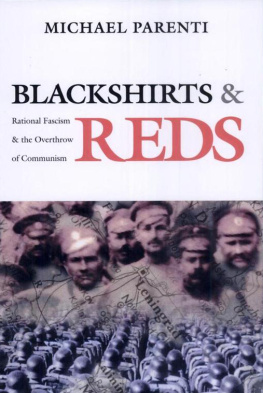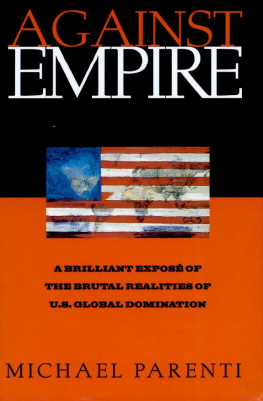
For assistance rendered in researching this book, I wish to thank Elizabeth Valente, Tina Kimmel, Sophie Lee, Gary Aguilar, Erica Etelson, Peter Livingston, Gerry Foley, Justin O'Hagan, Richard Wiebe, Christian Parenti, James Petras, Jennifer Tayloe, Eric Dynamic, Tom Saltsman, Heather Cottin, Barry Lituchy, Julia Scheeres, and Rick Garves. In addition, a word of appreciation goes to Linda Regan of Prometheus Books for her careful editing of the manuscript and her encouraging words, and also to Christine Kramer for her expert cooperation. And thanks to my agent, Andy Ross, for his efforts and steadfast support.


Michael Parenti is the author of hundreds of articles and twenty-one books, including The Assassination of Julius Caesar and Contrary Notions: The Michael Parenti Reader. He lectures frequently across North America and abroad. He lives in Berkeley, California. Visit him online at www.michaelparenti.org.

I do not feel obliged to believe that the same God who endowed us with sense, reason, and intellect has intended us to forgo their use.
GALILEO GALILEI
Since time immemorial, human beings have sought relief from the slings and arrows of outrageous fortune and the brutish uncertainties of a seemingly indifferent universe. Keenly aware of their vulnerability to infirmity and natural catastrophe, and often heartlessly victimized by other humans, they have beseeched their gods to bring them respite and wreak vengeance upon their enemies.
Even those who live with some measure of comfort and security face an inevitable mortality. Regardless of how they strive on earth, whatever the monuments they build to themselves, their ultimate fate on this planet is eternal nonexistencean anticipation that is neigh impossible for many to countenance. So they choose to anticipate perpetual reincarnation into this world, or they fashion gods who will usher them into la vita eterna, an endless celestial bliss of a kind so sorely wanting in our terrestrial existence.
Along with the fear of death is the fear of life. To modern dwellers as well as primitives, the world is beset by unpredictable forces that are stronger than we. Many such forces are perceived as the willful expression of gods (or a single god) who need to be propitiated and enlisted in our cause.
This does not mean that all religious experience is but a compensation for human travail. There are other reasons people have looked to the heavens. Our intelligence invites us to ponder the nature of cosmic existence, to be awed by the miracle of life itself and the boundless wonders of the universe. On questions of cosmology, physics begins to sound like metaphysics, as mysteries are confronted that once were the exclusive province of religion. Did the universe have a beginning? Where did it come from? What is its ultimate fate? How are we attached to it? Is there some purpose or intent?
The greatest of physicists, Albert Einstein, was one of those who pondered these imponderables: Try and penetrate with our limited means the secret of nature, he said, and you will find that, behind all the discernible laws and connections, there remains something subtle, intangible and inexplicable. Veneration for this force beyond anything that we can comprehend is my religion.
Perhaps the great German philosopher Georg Wilhelm Friedrich Hegel was right. In the beginning there was the world spirit, the Weltgeist, moving in unconscious creation, bringing forth cosmic energy that eventually objectified itself in the form of matter. From matter there evolved conscious matter in the form of life, and from conscious life came self-consciousnessthe ability of consciousness to reflect upon its own nature in highly complex abstracted formwhich, as far as we know, is a distinct property of human beings. What a remarkable thing the universe is that it would engage in this process of self-realizing (in both senses of the word) its own existence, a universe
To most philosophical materialists, questions about the existence of a spiritual realm are valueless, part of the unanswerable mysteries of existence. To religious believers they are self-evident: the mysteries are themselves manifestations of their deity's wonders. Human beings have fashioned numerous gods and goddesses over the centuries, many of whom have slipped into oblivion along with the societies that produced them.
In Western theism two basic traditions prevail. There is the god of rational totality, immutable and cosmic, impersonal and without deliberate demands, a pure creative force with an evolving design: Hegel's self-manifesting spirit. Then there is the Judeo-Christian god, the Lord our God, also known as Yahweh or Jehovah, and other personalized godheads who act directly and anthropomorphically upon history with moods of love, jealousy, favoritism, and judgmental rage.
In our culture it is the latter type of god who seems to have the widest following by far, bolstered by regiments of conservative fundamentalists who conjure up images of Him (never Her or It) as the Almighty Patriarch and Protector, Winner of Wars, Punisher of Impiety, and Divine Dispenser of Rewards to those who adore him. It is this god and his intolerant, furiously proselytizing, and often corrupt and evil adherents who are the object of my critical attention in the pages ahead (which is not to say that all believers are corrupt and evil).
IN SEARCH OF SACRED SECULARISM
This book is not the work of a militant atheist bent on divesting the faithful of their sometimes comforting and sometimes terrifying beliefs. There are many believers who adhere to a merciful and just god, and who summons their pious precepts in support of social justice, peace, and economic democracy. As might the best of secular progressives, the religious progressives oppose the exploitative and irresponsible power inflicted upon the many by the super privileged few throughout so much of the world. In addition, they do not try to bludgeon the rest of us with their convictions. Instead they show themselves tolerant of those who have neither taste nor talent for the supernatural. Such believers might find much to agree with in the pages ahead. In any case, they are not the people I am struggling against.
I do not much care whether people believe in one god or another or none at all. Of more interest is knowing how decent they might be as people and how committed they are to social justice, egalitarian reform, personal freedom, and environmental sustainability. Still, their religious views should not be a matter of total indifference to us, especially when they are wedded to reactionary political agendas. Those who attempt to impose their autocratic beliefs upon the entire society with the force of law become the enemies of personal liberty and a danger to our prospects for an open society. At this remove in time, the theocratic threat appears as lively as ever. We who are deeply devoted to secular democratic values should feel much troubled by the exploitative and totalitarian proclivities manifested by reactionary religionists of all stripes.
Next page
